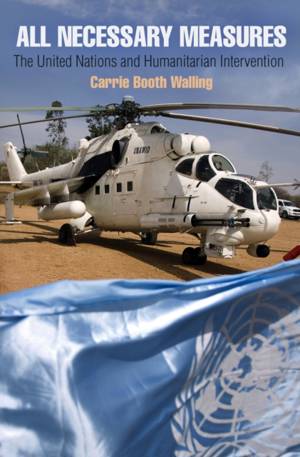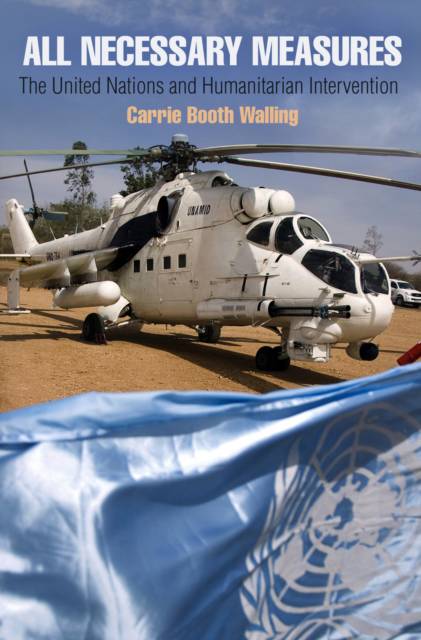
- Afhalen na 1 uur in een winkel met voorraad
- Gratis thuislevering in België vanaf € 30
- Ruim aanbod met 7 miljoen producten
- Afhalen na 1 uur in een winkel met voorraad
- Gratis thuislevering in België vanaf € 30
- Ruim aanbod met 7 miljoen producten
Omschrijving
What prompts the United Nations Security Council to engage forcefully in some crises at high risk for genocide and ethnic cleansing but not others? In All Necessary Measures, Carrie Booth Walling identifies several systematic patterns in the stories that council members tell about conflicts and the policy solutions that result from them. Drawing on qualitative comparative case studies spanning two decades, including situations where the council has intervened to stop mass killing (Somalia, Bosnia-Herzegovina, and Sierra Leone) as well as situations where it has not (Rwanda, Kosovo, and Sudan), Walling posits that the arguments council members make about the cause and character of conflict as well as the source of sovereign authority in target states have the potential to enable or constrain the use of military force in defense of human rights.
At a moment when constructivist scholars in international relations are pushing beyond empirical claims for the value of norms and toward critical analysis of such norms, All Necessary Measures establishes discourse's real-world explanatory power. From her comparative chronology, Walling demonstrates that humanitarian intervention becomes possible when the majority of Security Council members come to a shared understanding of the conflict, perpetrators, and victims--and probable when the Council understands state sovereignty as complementary to human rights norms. By illuminating the relationship between national interests and the core values of Security Council members and how it influences decision-making, All Necessary Measures suggests when and where the Security Council is likely to intervene in the future.Specificaties
Betrokkenen
- Auteur(s):
- Uitgeverij:
Inhoud
- Aantal bladzijden:
- 320
- Taal:
- Engels
- Reeks:
Eigenschappen
- Productcode (EAN):
- 9780812223859
- Verschijningsdatum:
- 27/07/2016
- Uitvoering:
- Paperback
- Formaat:
- Trade paperback (VS)
- Afmetingen:
- 150 mm x 226 mm
- Gewicht:
- 453 g

Alleen bij Standaard Boekhandel
Beoordelingen
We publiceren alleen reviews die voldoen aan de voorwaarden voor reviews. Bekijk onze voorwaarden voor reviews.








